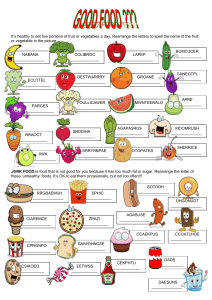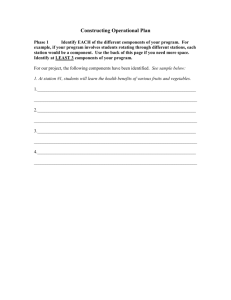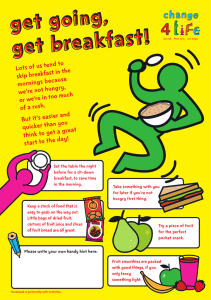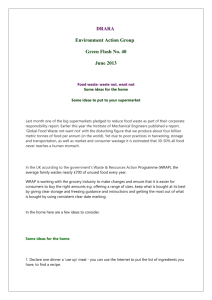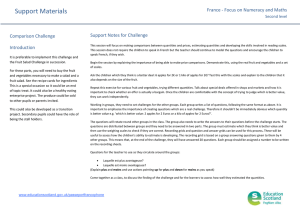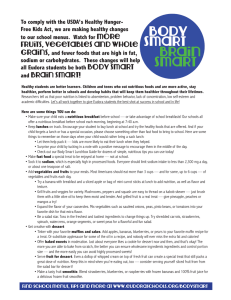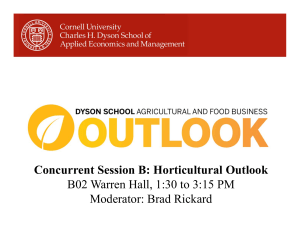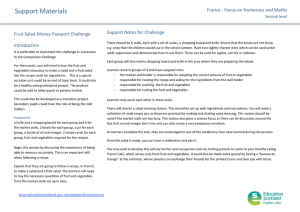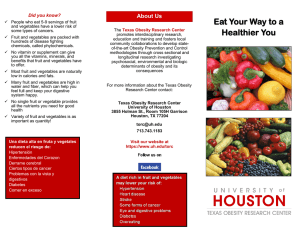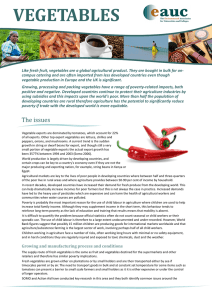Math 5740, Spring 2003 Disclaimer:
advertisement
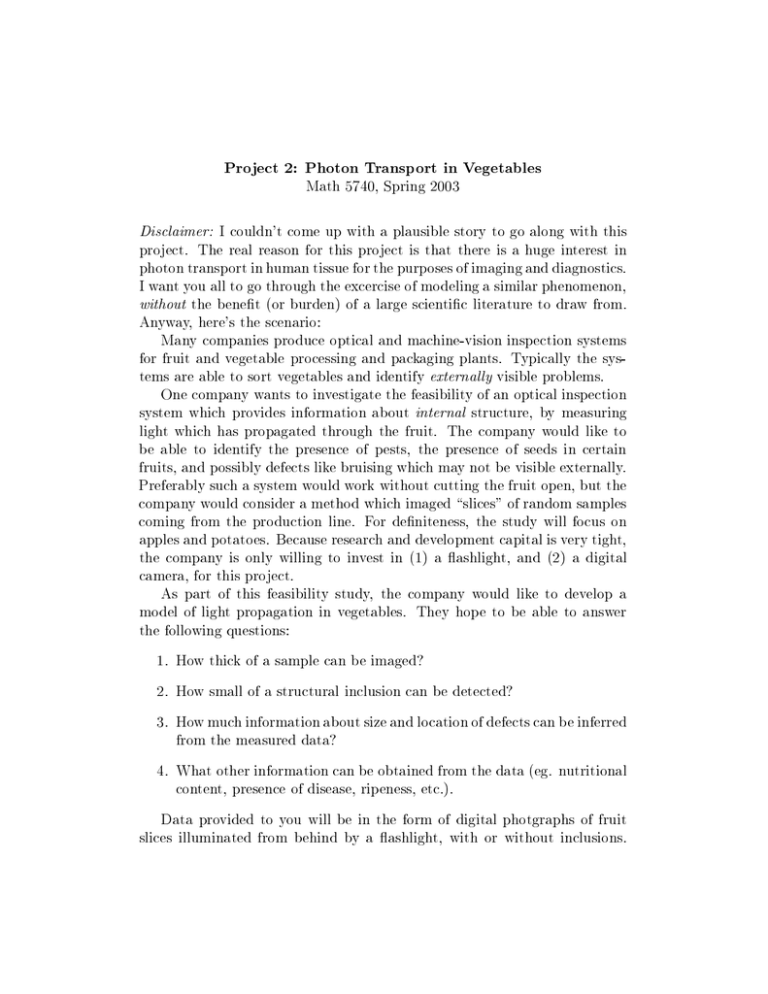
Project 2: Photon Transport in Vegetables
Math 5740, Spring 2003
Disclaimer: I couldn't come up with a plausible story to go along with this
project. The real reason for this project is that there is a huge interest in
photon transport in human tissue for the purposes of imaging and diagnostics.
I want you all to go through the excercise of modeling a similar phenomenon,
without the benet (or burden) of a large scientic literature to draw from.
Anyway, here's the scenario:
Many companies produce optical and machine-vision inspection systems
for fruit and vegetable processing and packaging plants. Typically the systems are able to sort vegetables and identify externally visible problems.
One company wants to investigate the feasibility of an optical inspection
system which provides information about internal structure, by measuring
light which has propagated through the fruit. The company would like to
be able to identify the presence of pests, the presence of seeds in certain
fruits, and possibly defects like bruising which may not be visible externally.
Preferably such a system would work without cutting the fruit open, but the
company would consider a method which imaged \slices" of random samples
coming from the production line. For deniteness, the study will focus on
apples and potatoes. Because research and development capital is very tight,
the company is only willing to invest in (1) a ashlight, and (2) a digital
camera, for this project.
As part of this feasibility study, the company would like to develop a
model of light propagation in vegetables. They hope to be able to answer
the following questions:
1. How thick of a sample can be imaged?
2. How small of a structural inclusion can be detected?
3. How much information about size and location of defects can be inferred
from the measured data?
4. What other information can be obtained from the data (eg. nutritional
content, presence of disease, ripeness, etc.).
Data provided to you will be in the form of digital photgraphs of fruit
slices illuminated from behind by a ashlight, with or without inclusions.
You may request additional experimental data, and may experiment with
your own vegetables, but you may not purchase any equipment for your
experiments.
Your model should be able to predict the data (photograph) resulting
from an inclusion in a specic fruit or vegetable slice, in a specied location.
At the conclusion of the project, I will provide each group with the parameters for such an experiment, and we will compare the output of your model
to an actual photograph of the experiment. Your goals for the project should
be to produce a model which predicts the outcome of the experiment well,
and which helps answer questions (1){(4) above.
